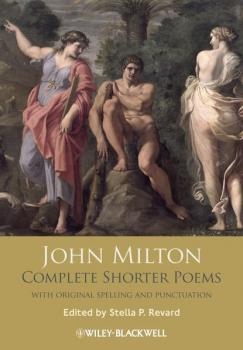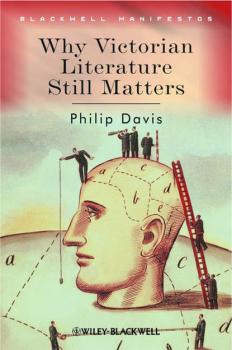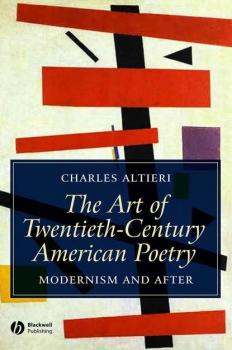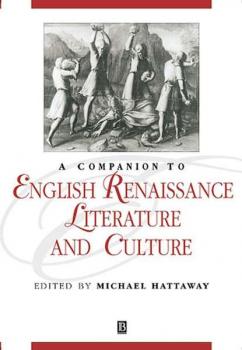Группа авторов
Список книг автора Группа авторовJohn Milton Complete Shorter Poems
An important and innovative edition of Milton's shorter verse & the first volume to present the poems with the original spelling and pronunciations intact, offering readers the opportunity to experience the vitality of the poems as they were experienced by Milton's contemporaries: Includes Milton's original Latin poems, with a new English translation on facing pages for cross-comparison Serves as a companion to Lewalski's Paradise Lost and Loewenstein's prose selections of Milton Features both collected and uncollected poetry in English, Latin, and Greek, the latter two with translations Retains original spelling and punctuation of Milton's 1645 Poems and his 1671 Paradise Regained and Sampson Agonistes Offers readers comprehensive footnotes, marginal glosses, chronology, bibliography, and longer discussions in introductions to sections
Why Victorian Literature Still Matters
Why Victorian Literature Still Matters is a passionate defense of Victorian literature’s enduring impact and importance for readers interested in the relationship between literature and life, reading and thinking. Explores the prominence of Victorian literature for contemporary readers and academics, through the author’s unique insight into why it is still important today Provides new frames of interpretation for key Victorian works of literature and close readings of important texts Argues for a new engagement with Victorian literature, from general readers and scholars alike Seeks to remove Victorian literature from an entrenched set of values, traditions and perspectives – demonstrating how vital and resonant it is for modern literary and cultural analysis
A Companion to the British and Irish Novel 1945 - 2000
A Companion to the British and Irish Novel 1945-2000 serves as an extended introduction and reference guide to the British and Irish novel between the close of World War II and the turn of the millennium. Covers a wide range of authors from Samuel Beckett to Salman Rushdie Provides readings of key novels, including Graham Greene’s ‘Heart of the Matter’, Jean Rhys’s ‘Wide Sargasso Sea’ and Kazuo Ishiguro’s ‘The Remains of the Day’ Considers particular subgenres, such as the feminist novel and the postcolonial novel Discusses overarching cultural, political and literary trends, such as screen adaptations and the literary prize phenomenon Gives readers a sense of the richness and diversity of the novel during this period and of the vitality with which it continues to be discussed
The Art of Twentieth-Century American Poetry
Written by a leading critic, this invigorating introduction to modernist American poetry conveys the excitement that can be generated by a careful reading of modernist poems. Encourages readers to identify with the modernists’ sense of the revolutionary possibilities of their art. Embraces four generations of modernist American poets up through to the 1980s. Gives readers a sense of the ambitions, the disillusionments and the continuities of modernist poetry. Includes close readings of particular poems which show how readers can use these works to connect with what concerns them.
A Concise Companion to Contemporary British Fiction
A Concise Companion to Contemporary British Fiction offers an authoritative overview of contemporary British fiction in its social, political, and economic contexts. Focuses on the fiction that has emerged since the late 1970s, roughly since the start of the Thatcher era. Comprises original essays from major scholars. Topics range from the rise and fall of the postcolonial novel to controversies over the celebrity author. The emphasis is on the whole fiction scene, from bookstores and prizes to the changing economics of film adaptation. Enables students to read contemporary works of British fiction with a much clearer sense of where they fit within British cultural life.
A Companion to Renaissance Drama
This expansive, inter-disciplinary guide to Renaissance plays and the world they played to gives readers a colorful overview of England's great dramatic age. Provides an expansive and inter-disciplinary approach to Renaissance plays and the world they played to. Offers a colourful and comprehensive overview of the material conditions of England's most important dramatic period. Gives readers facts and data along with up-to-date interpretation of the plays. Looks at the drama in terms of its cultural agency, its collaborative nature, and its ideological complexity.
A Companion to English Renaissance Literature and Culture
This is a one volume, up-to-date collection of more than fifty wide-ranging essays which will inspire and guide students of the Renaissance and provide course leaders with a substantial and helpful frame of reference. Provides new perspectives on established texts. Orientates the new student, while providing advanced students with current and new directions. Pioneered by leading scholars. Occupies a unique niche in Renaissance studies. Illustrated with 12 single-page black and white prints.
Chaucer and the Canterbury Tales
This concise and lively survey introduces students with no prior knowledge to Chaucer, and particularly to The Canterbury Tales. Provides essential facts about Chaucer, as well as a framework for thinking about his poetry. Encourages an engaged reading of The Canterbury Tales. Introduces students to the historical and religious background needed to understand the contexts in which Chaucer wrote. Provides essential facts about Chaucer, as well as a framework for thinking about his poetry. Encourages an engaged reading of The Canterbury Tales. Introduces students to the historical and religious background needed to understand the contexts in which Chaucer wrote.
A Concise Companion to the Restoration and Eighteenth Century
This Concise Companion presents fresh perspectives on eighteenth-century literature. Contributes to current debates in the field on subjects such as the public sphere, travel and exploration, scientific rhetoric, gender and the book trade, and historical versus literary perceptions of life on London streets. Searches out connections between the remarkable number of new genres that appeared in the eighteenth century. Crosses conventional disciplinary lines. Demonstrates that philosophy, history, politics and social theory both influence and are influenced by literature.
A Companion to Latin American Literature and Culture
A Companion to Latin American Literature and Culture reflects the changes that have taken place in cultural theory and literary criticism since the latter part of the twentieth century. Written by more than thirty experts in cultural theory, literary history, and literary criticism, this authoritative and up-to-date reference places major authors in the complex cultural and historical contexts that have compelled their distinctive fiction, essays, and poetry. This allows the reader to more accurately interpret the esteemed but demanding literature of authors such as Jorge Luis Borges, Mario Vargas Llosa, Octavio Paz, and Diamela Eltit. Key authors whose work has defined a period, or defied borders, as in the cases of Sor Juana Inés de la Cruz, César Vallejo, and Gabriel García Márquez, are also discussed in historical and theoretical context. Additional essays engage the reader with in-depth discussions of forms and genres, and discussions of architecture, music, and film. This text provides the historical background to help the reader understand the people and culture that have defined Latin American literature and its reception. Each chapter also includes short selected bibliographic guides and recommendations for further reading.









